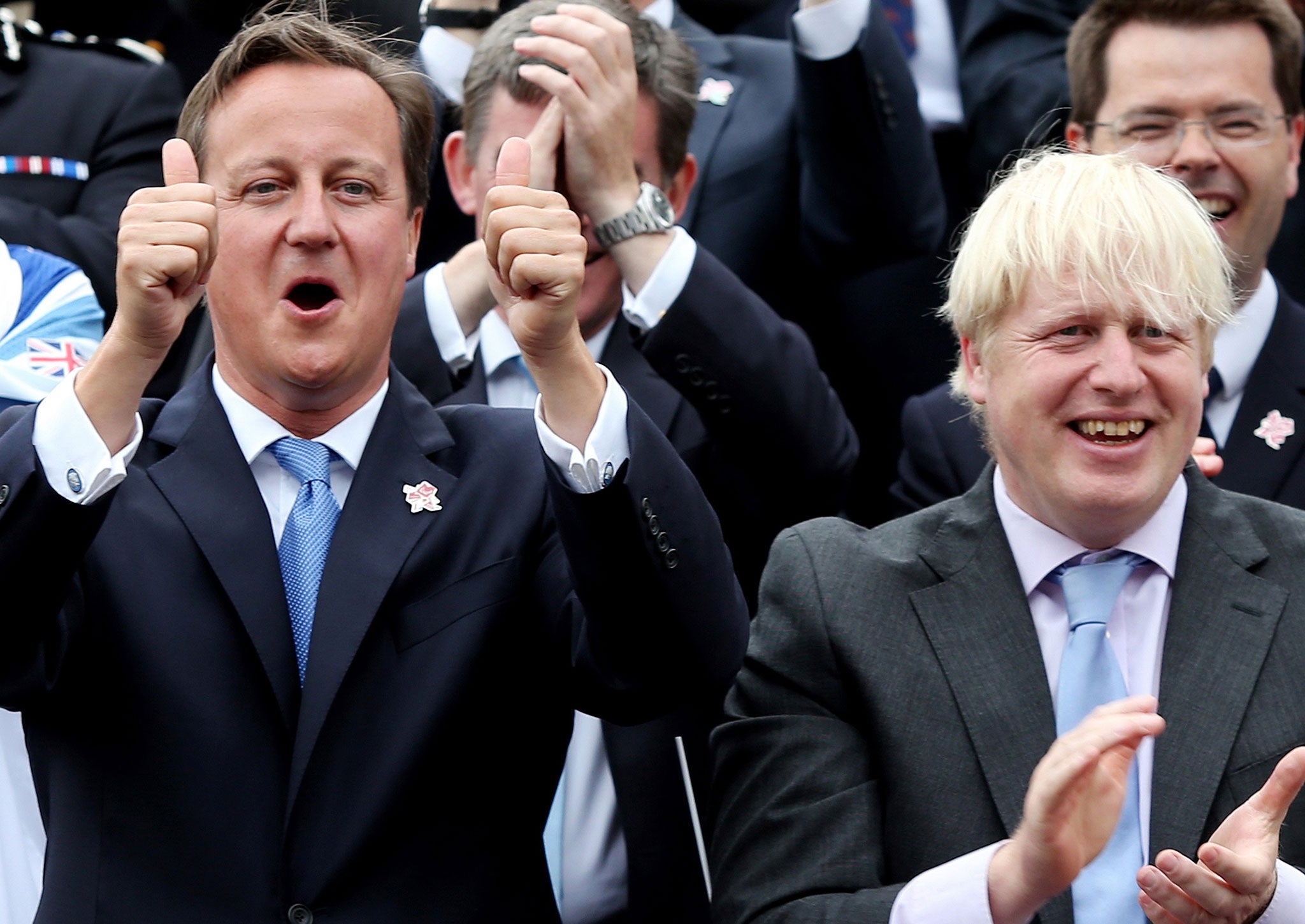Bring on the 2015 general election! And another one straight after!
It’s only natural to love a bit of chaos


As any last-minute foray to the shops today will remind those who forget their earplugs, Roy Wood wished it could be Christmas every day. Wood should either have been sectioned for that aspiration, you can’t help feeling, or gone into politics.
The politician’s career is devoted, after all, to mouthing saccharine emotions (happiness, enjoyment, renewed optimism) they do not feel; and feigning warmth towards people who drive them psychotic with irritation. If that isn’t a decent definition of Christmas, what is?
God bless them every one, the leaders of what we still call “the main parties”, because without divine intervention whichever of them survives the coming election will find every day more gruesomely Christmassy than seems humane.
As we join the Ghost of Coalition-Forming Yet To Come on a jaunt to some versions of the future, wonder this. However miserable Ed Miliband must feel at having to affect a friendship with Ed Balls, to what uncharted level of Dantean hell will he descend if he has to do the same with a rampaging Alex Salmond to sustain an SNP-backed Labour government? If David Cameron finds it a strain playing nice with Vince Cable, imagine his agony if he must suck up to Nigel Farage to stop a handful of Ukip MPs bringing down a minority Tory administration.
For the rest of us, or for that nerdy sub-section of the rest of us who follow British politics, the coming election provokes a pre-orgasmic judder. Actually, that’s cobblers. What makes the hormonal surge is not the election, which will be the most soul-crushing barrage of fatuous drivel since the last one, but its aftermath.
Every general election is trailed as “the most important in a generation, and some actually are. In 1945, 1962, 1979 and up to a point 1997, the punters had a clear choice between timorously sticking with the status quo and rolling the dice on serious change.
You will note that the gap between each of the above is almost identical at 17-18 years, and that if simple formulae dictated history’s path, 2015 would be another change election. However, since the Conservatives offer only more of the same, and since Ed Miliband is too timid to more than hint at the radical change to a flawed capitalism system he believes is needed, the choice is between austerity and austerity lite.
What ideas are doing the rounds (the mansion tax proselytised again by Balls this week, for instance, and the inheritance tax bribe Osborne will surely defrost from 2007) are footling ones targeted at the core vote. Grand dreams about freeing the people from their shackles, such as Attlee’s socialist utopia and Thatcher’s shrunken state, will be absent. All that fills the vacuum where ideology once lived is pure sport. What really thrills us nerds about the political future are the permutations of possible governments, the fate of the current leaders, and who might succeed them if they fall in May. Already, almost six months out, all the major political stories are speculation about jockeying for post-election position.
What price would Salmond demand from the younger Milibandroid to scrap the convention that SNP MPs do not vote on English matters? Will Labour “decapitate” Nick Clegg in Sheffield Hallam to clear its path to a deal with surviving Lib Dems? Will Theresa May survive her civil war with David Cameron to succeed him, or will George Osborne and Boris Johnson become the axis powers that frustrate her? All the time, the eyes remain focused on probably the most pivotal factor, which is how well Ukip’s present popularity survives to polling day.
I don’t mean to disparage the lust for sporting melodrama that underpins the coverage, because it’s natural to love a bit of chaos. The mayhem in 2000 before the Supreme Court handed George W Bush the White House was a joy, as were the days of confusion following the 2010 vote until Cameron sweet-talked Clegg into draining the hemlock.
The anticipation of weeks, or months, of horse-trading, accusations of betrayal, and fancy talk of “constitutional crisis” if Labour and the Tories dead heat and cannot form a workable coalition solely with Lib Dem support, is delicious. Who wouldn’t relish a second election late next year, and a third in 2016? A period of genteel paralysis on Belgian lines (brave little Belgium recently survived 535 days without a government) would be more than arch commentary on governmental impotence in a globalised world, or the collapse of public faith in traditional leadership. It would be tremendous fun. For a while.
Eventually, once it became plain that stasis is not the same as revolution but its polar opposite, the novelty would wear off. With apologies to Russell Brand, we only talk revolution here (hence the labelling of a smooth transfer of power from one Stuart monarch to his daughter and her Dutch husband as “The Glorious Revolution”). What we do in fact do here, sporadically, is make a noise about wanting revolution, until the energy fizzles out and everything dribbles on as before.
This two-party system has not survived for centuries by being intrinsically fragile. If it is failing now, it will revive soon enough. In the meantime, there’s nothing for it but to strap on the seat belts in expectation of a fantastically bumpy ride for whichever poor sod emerges from the chaos as the accursed Roy Wood of Westminster.
Join our commenting forum
Join thought-provoking conversations, follow other Independent readers and see their replies
Comments